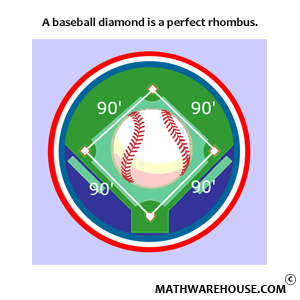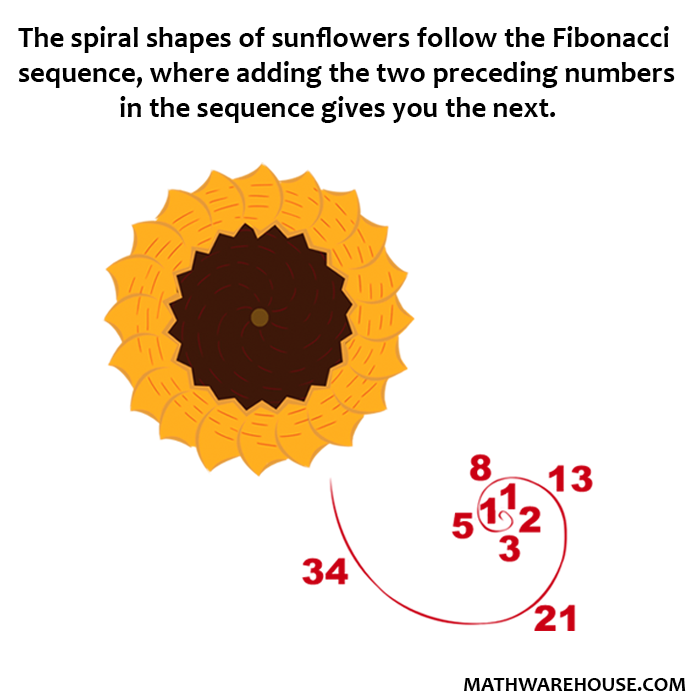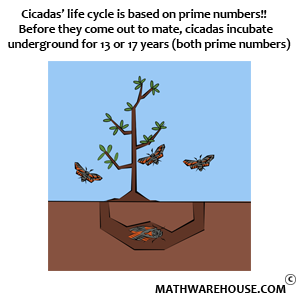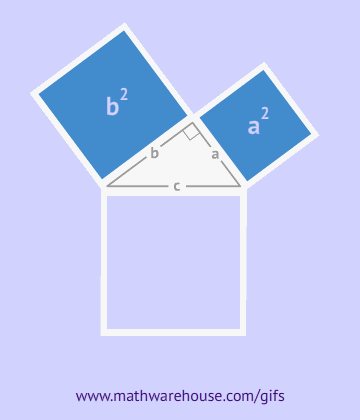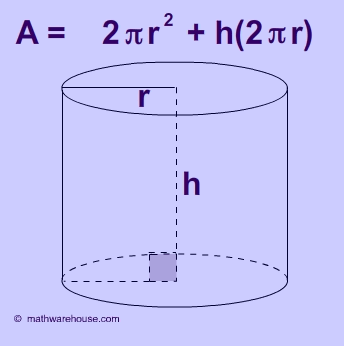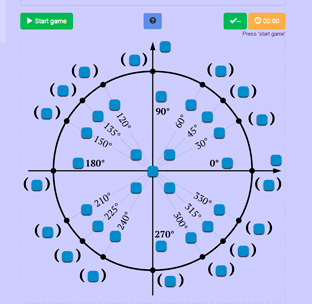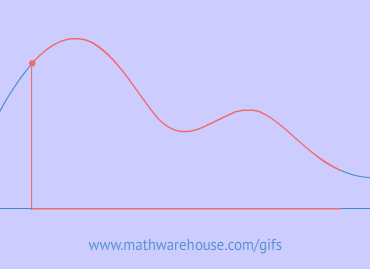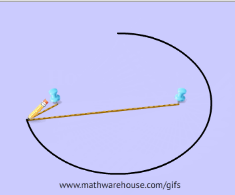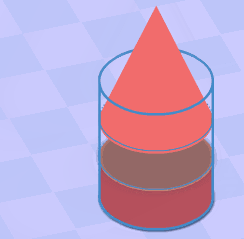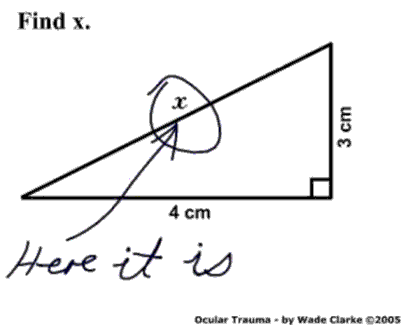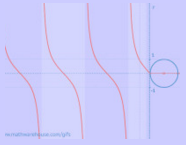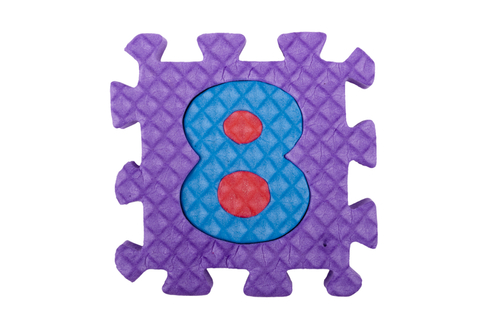Quick Overview
- The derivative rules are established using the definition.
- Once we've established the derivative rules, we can use them to find derivatives more efficiently than using the definition each time.
- The derivative rules include...
- Derivative of Constants
- Derivative of the Identity Function
- Sum Rule
- Difference Rule
- Constant Coefficient Rule
- Derivatives of Linear Functions
- Derivatives of Sines, Cosines and Exponential
Derivatives of Constants
Find $$\displaystyle \frac d {dx} \left(k\right)$$
Step 1Evaluate the definition of the derivative.
$$ \\ \begin{align*} \frac d {dx}\left(k\right) & = \lim_{h\to0} \frac{\blue{f(x+h)} - \red{f(x)}} h\\[6pt] & = \lim_{h\to0} \frac{\blue{k} - \red{k}} h\\[6pt] & = \lim_{h\to0} \frac 0 h\\[6pt] & = \lim_{h\to0} 0\\[6pt] & = 0 \end{align*} \\ $$
Answer$$\displaystyle \frac d {dx}\left(k\right) = 0$$
Derivative of the Identity Function
Recall that the identity function is $$f(x) = x$$. Find $$f'(x)$$
Step 1Evaluate the functions in the definition of the derivative. Then simplify.
$$ \begin{align*} f'(x) & = \lim_{h\to 0} \frac{\blue{f(x+h)} -\red{f(x)}} h\\[6pt] & = \lim_{h\to 0} \frac{\blue{x+h} -\red x} h\\[6pt] & = \lim_{h\to 0} \frac h h\\[6pt] & = \lim_{h\to 0} 1\\[6pt] & = 1 \end{align*} $$
Answer$$f'(x) = 1$$ when $$f(x) = x$$
Sum Rule for Derivatives
Suppose $$f(x)$$ and $$g(x)$$ are differentiable1 and $$h(x) = f(x) + g(x)$$. Find $$h'(x)$$.
1If a function is differentiable, then its derivative exists.
Step 1Evaluate the functions in the definition of the derivative
$$ \begin{align*} h'(x) & = \lim_{\Delta x\to 0} \frac{\blue{h(x+\Delta x)} - \red{h(x)}}{\Delta x}\\[6pt] & = \lim_{\Delta x\to 0} \frac{\blue{f(x+\Delta x)+g(x+\Delta x)} - \red{[f(x)+g(x)]}}{\Delta x}\\[6pt] & = \lim_{\Delta x\to 0} \frac{\blue{f(x+\Delta x)+g(x+\Delta x)} - \red{f(x)-g(x)}}{\Delta x} \end{align*} $$
Step 2Rearrange the numerator so that the $$f$$ terms are together and the $$g$$ terms are together.
$$ \begin{align*} h'(x) & = \lim_{\Delta x\to 0} \frac{\blue{f(x+\Delta x)}+\red{g(x+\Delta x)} - \blue{f(x)}-\red{g(x)}}{\Delta x}\\[6pt] & = \lim_{\Delta x\to 0} \frac{\blue{f(x+\Delta x)} - \blue{f(x)}+\red{g(x+\Delta x)}-\red{g(x)}}{\Delta x} \end{align*} $$
Step 3Split into two limits. One containing the $$f$$ terms, the other containing the $$g$$ terms.
$$ \begin{align*} h'(x) & = \lim_{\Delta x\to 0} \frac{\blue{f(x+\Delta x) - f(x)}+\red{g(x+\Delta x)-g(x)}}{\Delta x}\\[6pt] & = \lim_{\Delta x\to 0} \left(\frac{\blue{f(x+\Delta x) - f(x)}}{\blue{\Delta x}}+\frac{\red{g(x+\Delta x)-g(x)}}{\red{\Delta x}}\right)\\[6pt] & = \lim_{\Delta x\to 0}\frac{\blue{f(x+\Delta x) - f(x)}}{\blue{\Delta x}}+ \lim_{\Delta x\to 0}\frac{\red{g(x+\Delta x)-g(x)}}{\red{\Delta x}} \end{align*} $$
Step 4Evaluate each limit.
Notice that the first limit is exactly the definition of $$f'(x)$$ and the second limit is the definition of $$g'(x)$$
$$ \begin{align*} h'(x) & = \blue{\lim_{\Delta x\to 0}\frac{f(x+\Delta x) - f(x)}{\Delta x}}+ \red{\lim_{\Delta x\to 0}\frac{g(x+\Delta x)-g(x)}{\Delta x}}\\[6pt] & = \blue{f'(x)}+ \red{g'(x)} \end{align*} $$
Summary of the Rule: $$\displaystyle \frac d{dx}\left( f(x) + g(x)\right) = f'(x) + g'(x)$$
Difference Rule for Derivatives
Suppose $$f(x)$$ and $$g(x)$$ are differentiable and $$h(x) = f(x) - g(x)$$. Find $$h'(x)$$.
Step 1Evaluate the functions in the definition of the derivative.
$$ \begin{align*} \frac d {dx}\left(f(x) - g(x)\right) & = \lim_{\Delta x\to 0} \frac{\blue{h(x+\Delta x)} - \red{h(x)}}{\Delta x}\\[6pt] & = \lim_{\Delta x\to 0} \frac{\blue{f(x+\Delta x) - g(x+\Delta x)} - (\red{f(x)-g(x)})}{\Delta x}\\[6pt] & = \lim_{\Delta x\to 0} \frac{\blue{f(x+\Delta x) - g(x+\Delta x)} - \red{f(x) + g(x)}}{\Delta x} \end{align*} $$
Step 2Group the $$f$$ terms and the $$g$$ terms.
$$ \begin{align*} \frac d {dx}\left(f(x) - g(x)\right) & = \lim_{\Delta x\to 0} \frac{\blue{f(x+\Delta x)} - \red{g(x+\Delta x)} - \blue{f(x)} + \red{g(x)}}{\Delta x}\\[6pt] & = \lim_{\Delta x\to 0} \frac{\blue{f(x+\Delta x)} - \blue{f(x)} - \red{g(x+\Delta x)} + \red{g(x)}}{\Delta x} \end{align*} $$
Step 3Separate into two limits.
$$ \begin{align*} \frac d {dx}\left(f(x) - g(x)\right) & = \lim_{\Delta x\to 0} \frac{\blue{f(x+\Delta x) - f(x)} \red{\,-\,g(x+\Delta x) + g(x)}}{\Delta x}\\[6pt] & = \lim_{\Delta x\to 0} \left(\blue{\frac{f(x+\Delta x) - f(x)}{\Delta x}} + \red{\frac{- g(x+\Delta x) + g(x)}{\Delta x}}\right)\\[6pt] & = \lim_{\Delta x\to 0} \frac{f(x+\Delta x) - f(x)}{\Delta x} + \lim_{\Delta x\to 0} \frac{- g(x+\Delta x) + g(x)}{\Delta x}\\[6pt] & = \blue{\lim_{\Delta x\to 0} \frac{f(x+\Delta x) - f(x)}{\Delta x}} - \red{\lim_{\Delta x\to 0} \frac{g(x+\Delta x) - g(x)}{\Delta x}} \end{align*} $$
Step 4Evaluate each limit.
Note that the first limit is precisely the definition of $$f'(x)$$ while the second limit is the definition of $$g'(x)$$.
$$ \begin{align*} \frac d {dx}\left(f(x) - g(x)\right) & = \blue{\lim_{\Delta x\to 0} \frac{f(x+\Delta x) - f(x)}{\Delta x}} - \red{\lim_{\Delta x\to 0} \frac{g(x+\Delta x) - g(x)}{\Delta x}}\\[6pt] & = \blue{f'(x)} - \red{g'(x)} \end{align*} $$
Summary of the Rule: $$\displaystyle \frac d {dx}\left(f(x)-g(x)\right) = f'(x) - g'(x)$$
Constant Coefficient Rule
Suppose $$f(x)$$ is differentiable and $$g(x) = k\cdot f(x)$$. Find $$g'(x)$$.
Step 1Evaluate the functions in the definition of the derivative.
$$ \begin{align*} g'(x) & = \lim_{x\to h} \frac{\blue{g(x+h)} - \red{g(x)}} h\\[6pt] & = \lim_{x\to h} \frac{\blue{k\cdot f(x+h)} - \red{k\cdot f(x)}} h \end{align*} $$
Step 2Factor out the $$k$$ and then evaluate the limit.
$$ \begin{align*} g'(x) & = \lim_{x\to h} \frac{\blue k\cdot f(x+h) - \blue k\cdot f(x)} h\\[6pt] & = \lim_{x\to h} \blue k \cdot \frac{f(x+h) - f(x)} h\\[6pt] & = \blue k\cdot \lim_{x\to h} \frac{f(x+h) - f(x)} h\\[6pt] & = \blue k\cdot f'(x) \end{align*} $$
Summary of Rule: $$\displaystyle \frac d {dx}\left(k\cdot f(x)\right) = k\cdot f'(x)$$
Derivatives of Linear Functions
Find $$\displaystyle \frac d {dx}\left(mx + b\right)$$.
Step 1Evaluate the functions in the definition of the derivative, and simplify.
$$ \begin{align*} \frac d {dx}\left(mx + b\right) & = \lim_{h\to 0} \frac{\blue{f(x+h)}-\red{f(x)}} h\\[6pt] & = \lim_{h\to 0} \frac{\blue{m(x+h)+ b}-(\red{mx+b})} h\\[6pt] & = \lim_{h\to 0} \frac{\blue{mx+mh+ b}-\red{mx-b}} h \\[6pt] & = \lim_{h\to 0} \frac{mh} h\\[6pt] & = \lim_{h\to 0} m \end{align*} $$
Step 2Evaluate the limit.
$$ \frac d {dx}\left(mx + b\right) = \displaystyle\lim_{h\to 0} m = m $$
Summary of Rule: $$\displaystyle \frac d {dx}\left(mx + b\right) = m$$ (The derivative of a linear function is just its slope.)
Derivative of the $$y = \sin kx$$
Find $$\frac d {dx}\left(\sin kx\right)$$.
Step 1Evaluate the functions in the definition of the derivative.
$$ \begin{align*} \frac d {dx}\left(\sin kx\right) & = \lim_{h\to 0} \frac{\blue{f(x + h)} - \red{f(x)}} h\\[6pt] & = \lim_{h\to 0} \frac{\blue{\sin(k(x + h))} - \red{\sin kx}} h\\[6pt] & = \lim_{h\to 0} \frac{\blue{\sin(kx + kh)} - \red{\sin kx}} h \end{align*} $$
Step 2Expand the sine function using the Sum of Angles for the Sine.
$$ \begin{align*} \frac d {dx}\left(\sin kx\right) & = \lim_{h\to 0} \frac{\sin(\blue{kx} + \red{kh}) - \sin kx} h\\[6pt] & = \lim_{h\to 0} \frac{\sin\blue{kx}\cos\red{kh} + \sin\red{kh}\cos\blue{kx} - \sin kx} h \end{align*} $$
Step 3Rearrange the numerator so you can factor out the $$\sin kx$$.
$$ \begin{align*} \frac d {dx}\left(\sin kx\right) & = \lim_{h\to 0} \frac{\blue{\sin kx}\cos kh + \sin kh\cos kx - \blue{\sin kx}} h\\[6pt] & = \lim_{h\to 0} \frac{\blue{\sin kx}\cos kh - \blue{\sin kx} + \sin kh\cos kx} h\\[6pt] & = \lim_{h\to 0} \frac{\blue{\sin kx}\left(\cos kh - 1\right) + \sin kh\cos kx} h \end{align*} $$
Step 4Separate into two limits. Factor out the terms that do not involve $$h$$.
$$ \begin{align*} \frac d {dx}\left(\sin kx\right) & = \lim_{h\to 0} \frac{\blue{\sin kx}\left(\cos kh - 1\right) + \sin kh\,\red{\cos kx}} h\\[6pt] & = \lim_{h\to 0} \left(\frac{\blue{\sin kx}\left(\cos kh - 1\right)} h + \frac{\sin kh\,\red{\cos kx}} h\right)\\[6pt] & = \lim_{h\to 0} \frac{\blue{\sin kx}\left(\cos kh - 1\right)} h + \lim_{h\to 0} \frac{\sin kh\,\red{\cos kx}} h\\[6pt] & = \blue{\sin kx}\cdot \lim_{h\to 0} \frac{\cos kh - 1} h + \red{\cos kx}\cdot \lim_{h\to 0} \frac{\sin kh} h \end{align*} $$
Step 5Evaluate each limit.
$$ \begin{align*} \frac d {dx}\left(\sin kx\right) & = \sin kx\cdot \blue{\lim_{h\to 0} \frac{\cos kh - 1} h} + \cos kx\cdot \red{\lim_{h\to 0} \frac{\sin kh} h}\\[6pt] & = \sin kx\cdot \blue{(0)} + \cos kx\cdot \red{\lim_{h\to 0} \frac k k \cdot \frac{\sin kh} h}\\[6pt] & = \red k \cos kx\cdot \red{\lim_{h\to 0} \frac{\sin kh} {kh}}\\[6pt] & = k \cos kx\cdot \red{(1)}\\[6pt] & = k \cos kx \end{align*} $$
Summary of Rule: $$\displaystyle \frac d {dx}\left(\sin kx\right) = k\cos kx$$
Derivative of $$y = \cos kx$$
Find $$\frac d {dx}\left(\cos kx\right)$$.
Step 1Evaluate the functions in the definition of the derivative.
$$ \begin{align*} \frac d {dx}\left(\cos kx\right) & = \lim_{h\to 0} \frac{\blue{f(x + h)} - \red{f(x)}} h\\[6pt] & = \lim_{h\to 0} \frac{\blue{\cos(k(x + h))} - \red{\cos(kx)}} h\\[6pt] & = \lim_{h\to 0} \frac{\blue{\cos(kx + kh)} - \red{\cos(kx)}} h \end{align*} $$
Step 2Expand the cosine function using the Sum of Angles for the Cosine.
$$ \begin{align*} \frac d {dx}\left(\cos kx\right) & = \lim_{h\to 0} \frac{\cos(\blue{kx} + \red{kh}) - \cos(kx)} h\\[6pt] & = \lim_{h\to 0} \frac{\cos\blue{kx}\cos \red{kh} - \sin\blue{kx}\sin\red{kh} - \cos kx} h \end{align*} $$
Step 3Rearrange the numerator and factor out the $$\cos kx$$.
$$ \begin{align*} \frac d {dx}\left(\cos kx\right) & = \lim_{h\to 0} \frac{\blue{\cos kx}\cos kh - \sin kx\sin kh - \blue{\cos kx}} h\\[6pt] & = \lim_{h\to 0} \frac{\blue{\cos kx}\cos kh - \blue{\cos kx} - \sin kx\sin kh} h\\[6pt] & = \lim_{h\to 0} \frac{\blue{\cos kx}(\cos kh - 1) - \sin kx\sin kh} h \end{align*} $$
Step 4Separate into two limits. Factor out the terms not involving $$h$$.
$$ \begin{align*} \frac d {dx}\left(\cos kx\right) & = \lim_{h\to 0} \frac{\blue{\cos kx}(\cos kh - 1) - \red{\sin kx}\sin kh} h\\[6pt] & = \lim_{h\to 0} \left(\frac{\blue{\cos kx}(\cos kh - 1)} h - \frac{\red{\sin kx}\sin kh} h\right)\\[6pt] & = \lim_{h\to 0} \frac{\blue{\cos kx}(\cos kh - 1)} h - \lim_{h\to 0} \frac{\red{\sin kx}\sin kh} h\\[6pt] & = \blue{\cos kx}\cdot\lim_{h\to 0} \frac{\cos kh - 1} h - \red{\sin kx}\cdot\lim_{h\to 0} \frac{\sin kh} h \end{align*} $$
Step 5Evaluate each limit.
$$ \begin{align*} \frac d {dx}\left(\cos kx\right) & = \cos kx \cdot\blue{\lim_{h\to 0} \frac{\cos kh - 1} h} - \sin kx \cdot\red{\lim_{h\to 0} \frac{\sin kh} h}\\[6pt] & = \cos kx \cdot\blue{(0)} - \sin kx \cdot\red{\lim_{h\to 0} \frac k k\cdot \frac{\sin kh} h}\\[6pt] & = \cos kx \cdot\blue{(0)} - \red k\sin kx \cdot\red{\lim_{h\to 0} \frac{\sin kh} {kh}}\\[6pt] & = - k\sin kx \cdot\red{(1)}\\[6pt] & = - k\sin kx \end{align*} $$
Summary of Rule: $$\displaystyle \frac d {dx}\left(\cos kx\right) = -k\sin kx$$
Derivative of $$y = e^{kx}$$
Find $$\frac d {dx}\left(e^{kx}\right)$$.
Step 1Evaluate the functions in the definition of the derivative.
$$ \begin{align*} \frac d {dx}\left(e^{kx}\right) & = \lim_{h\to 0} \frac{\blue{f(x + h)} - \red{f(x)}} h\\[6pt] & = \lim_{h\to 0} \frac{\blue{e^{k(x+h)}} - \red{e^{kx}}} h\\[6pt] & = \lim_{h\to 0} \frac{\blue{e^{kx+kh}} - \red{e^{kx}}} h \end{align*} $$
Step 2Use the properties of exponents to simplify the numerator.
$$ \begin{align*} \frac d {dx}\left(e^{kx}\right) & = \lim_{h\to 0} \frac{e^{\blue{kx}+\red{kh}} - e^{kx}} h\\[6pt] & = \lim_{h\to 0} \frac{e^{\blue{kx}}\cdot e^{\red{kh}} - e^{kx}} h \end{align*} $$
Step 3Factor out the $$e^{kx}$$ terms.
$$ \begin{align*} \frac d {dx}\left(e^{kx}\right) & = \lim_{h\to 0} \frac{\blue{e^{kx}}\cdot e^{kh} - \blue{e^{kx}}} h\\[6pt] & = \lim_{h\to 0} \frac{\blue{e^{kx}}\left(e^{kh} - 1\right)} h\\[6pt] & = \blue{e^{kx}}\cdot \lim_{h\to 0} \frac{e^{kh} - 1} h \end{align*} $$
Step 4Evaluate the limit using the techniques from the lesson on Indeterminate Limits---Exponential Forms.
$$ \begin{align*} \frac d {dx}\left(e^{kx}\right) & = e^{kx}\cdot \lim_{h\to 0} \frac{e^{kh} - 1} h\\[6pt] & = e^{kx}\cdot \lim_{h\to 0}\blue{\frac k k}\cdot \frac{e^{kh} - 1} h\\[6pt] & = \blue k e^{kx}\cdot \lim_{h\to 0}\frac{e^{kh} - 1}{\blue k h}\\[6pt] & = ke^{kx}\cdot \blue{\lim_{h\to 0}\frac{e^{kh} - 1} {kh}}\\[6pt] & = ke^{kx}\blue{(1)}\\[6pt] & = ke^{kx} \end{align*} $$
Summary of Rule: $$\displaystyle \frac d {dx}\left(e^{kx}\right) = ke^{kx}$$
List of Basic Derivatives
Suppose $$f(x)$$ and $$g(x)$$ are differentiable functions and $$k$$ is a constant. Then...
- Derivative of a Constant: $$\displaystyle \frac d {dx} \left( k \right) = 0$$
- Derivative of the Identity Function: $$\displaystyle \frac d {dx} \left( x \right) = 1$$
- Derivative of a Sum: $$\displaystyle \frac d {dx} \left( f(x) + g(x) \right) = f'(x) + g'(x)$$
- Derivative of a Difference: $$\displaystyle \frac d {dx} \left( f(x) - g(x) \right) = f'(x) - g'(x)$$
- Derivatives with Constant Coefficients: $$\displaystyle \frac d {dx} \left( k\cdot f(x) \right) = k\cdot f'(x)$$
- Derivative of a Linear Function: $$\displaystyle \frac d {dx} \left( mx + b \right) = m$$
- Derivative of the Sine Function: $$\displaystyle \frac d {dx} \left( \sin kx \right) = k\cos kx$$
- Derivative of the Cosine Function: $$\displaystyle \frac d {dx} \left( \cos kx \right) = -k\sin kx$$
- Derivative of the Exponential Function: $$\displaystyle \frac d {dx} \left( e^{kx} \right) = ke^{kx}$$

